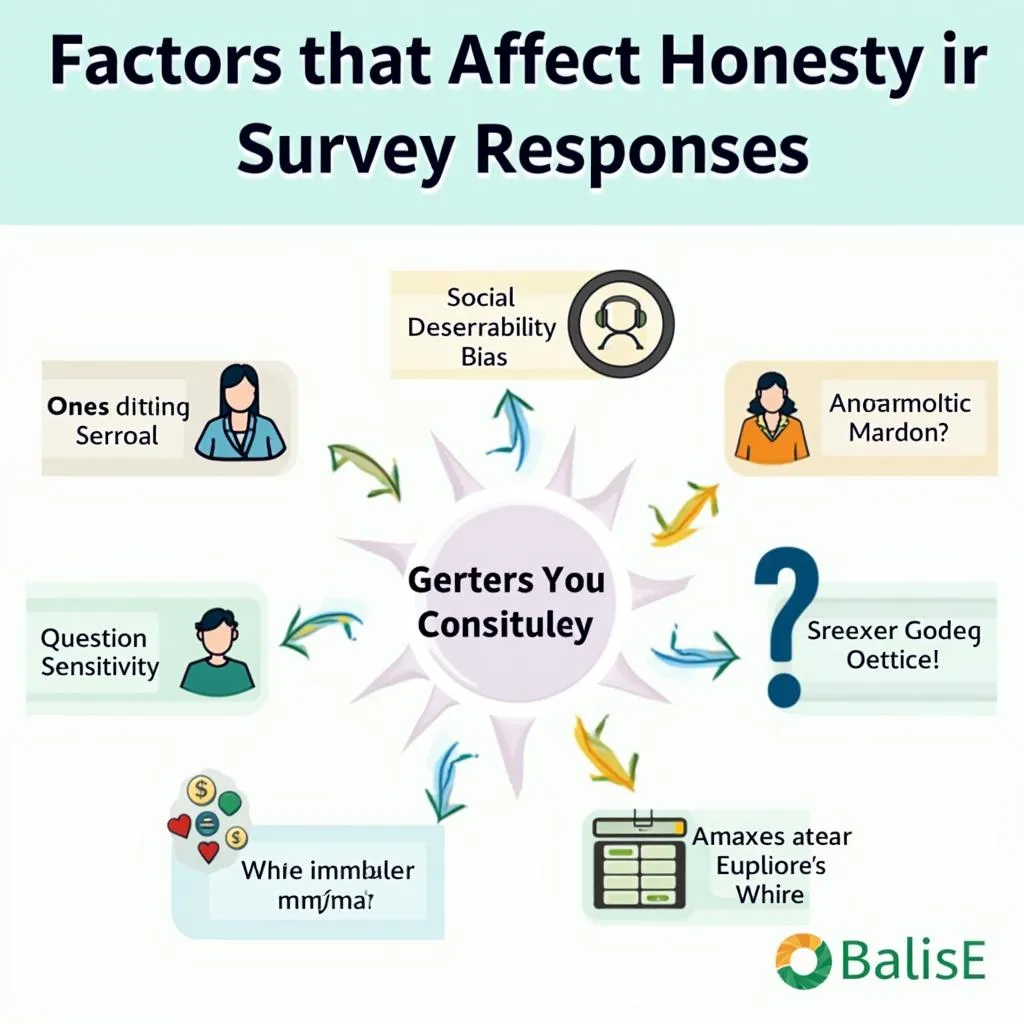Describing a time when you were asked for your opinion in a survey is a common topic in IELTS Speaking tests. This theme allows examiners to assess your ability to recount personal experiences, express opinions, and discuss broader societal issues. Let’s explore how to excel in this topic across all parts of the IELTS Speaking test.
Table Of Contents
Part 1: Introduction and Interview
In this section, the examiner may ask general questions about surveys and your experiences with them. Here are some possible questions:
- Have you ever participated in a survey?
- What kind of surveys do you think are most useful?
- Do you think online surveys are reliable?
Let’s look at a sample answer for the first question:
Examiner: Have you ever participated in a survey?
Candidate (Band 7-8 response): Yes, I have. In fact, I recently took part in a comprehensive online survey about consumer habits. It was quite extensive, covering various aspects of my shopping preferences and lifestyle choices. I found it rather engaging as it made me reflect on my own behaviors and decision-making processes.
Part 2: Long Turn
Here’s a potential cue card related to the topic:
Describe a time when you were asked for your opinion in a survey
You should say:
- What the survey was about
- When and where you completed it
- Why you were asked to give your opinion
- And explain how you felt about being asked to give your opinion
Here’s a sample response targeting Band 8-9:
I’d like to talk about a memorable experience I had participating in a survey that left quite an impression on me. The survey in question was conducted by my university’s administration and focused on student satisfaction with various aspects of campus life, including academic resources, extracurricular activities, and overall student well-being.
I vividly recall completing this survey in my dormitory room one evening last semester. It was a comprehensive online questionnaire that took me about 30 minutes to fill out. The timing was particularly apt as it coincided with the end of my second year, allowing me to draw from a wealth of experiences.
The university sought student opinions to gain insights into areas that needed improvement and to identify successful initiatives. As a student representative on the campus activities board, I was specifically targeted for my input, given my unique perspective on student engagement and campus events.
Being asked to contribute my thoughts in this manner was both flattering and empowering. I felt a sense of responsibility knowing that my responses could potentially shape future policies and programs. It was gratifying to know that the administration valued student input and was actively seeking ways to enhance our college experience.
Moreover, the survey provided an opportunity for introspection, prompting me to reflect on my own journey at the university and articulate both positive experiences and areas where I saw room for growth. Overall, I found the experience to be surprisingly rewarding and felt a stronger connection to my academic community as a result.
 IELTS Speaking: Describing a survey experience
IELTS Speaking: Describing a survey experience
Follow-up questions:
- How do you think universities can improve their surveys to get more honest feedback?
- In your opinion, what are the advantages and disadvantages of online surveys compared to face-to-face interviews?
Sample answer for question 1 (Band 8-9):
To elicit more honest feedback, universities could consider implementing anonymous submission systems to alleviate concerns about potential repercussions. Additionally, offering incentives for thoughtful responses, such as small campus perks, might encourage students to provide more detailed and candid opinions. Universities could also conduct follow-up focus groups to delve deeper into issues raised in surveys, fostering a culture of open dialogue and continuous improvement.
Part 3: Two-way Discussion
In this section, the examiner might ask more abstract questions related to surveys and public opinion. Here are some potential questions and sample responses:
Examiner: How important do you think public opinion surveys are for government decision-making?
Candidate (Band 8-9 response): Public opinion surveys play a crucial role in democratic societies by providing a channel for citizens to voice their concerns and preferences. They serve as a vital feedback mechanism, allowing governments to gauge public sentiment on various issues and tailor policies accordingly. However, it’s important to note that while surveys can inform decision-making, they shouldn’t be the sole basis for policy formulation. Governments must strike a balance between responding to public opinion and making decisions based on expert knowledge and long-term strategic planning.
Examiner: Do you think people always give honest answers in surveys? Why or why not?
Candidate (Band 8-9 response): The honesty of survey responses can vary significantly depending on various factors. People may not always provide truthful answers due to social desirability bias, where they respond in ways they believe are more socially acceptable. Additionally, the anonymity level of the survey can influence honesty – respondents might be more candid in anonymous online surveys compared to face-to-face interviews. The nature of the questions also plays a role; sensitive topics might elicit less honest responses. To mitigate these issues, survey designers often employ techniques such as indirect questioning or randomized response methods to encourage more truthful answers.
 Factors influencing survey response honesty
Factors influencing survey response honesty
Key Vocabulary and Phrases
To achieve a high score in IELTS Speaking, incorporating advanced vocabulary and idiomatic expressions is crucial. Here are some key terms and phrases related to surveys and opinion-giving:
-
To gauge public opinion /ɡeɪdʒ/ (phrase) – to measure or determine what the public thinks about something
Example: The government conducted a nationwide survey to gauge public opinion on the proposed tax reform. -
Comprehensive /ˌkɒmprɪˈhensɪv/ (adjective) – complete and including everything that is necessary
Example: The survey was comprehensive, covering all aspects of customer satisfaction. -
To elicit feedback /ɪˈlɪsɪt/ (phrase) – to obtain or draw out information from someone
Example: The questionnaire was designed to elicit detailed feedback about the new product features. -
Statistically significant /stəˈtɪstɪkli sɪɡˈnɪfɪkənt/ (phrase) – important or meaningful in terms of statistics
Example: The survey results showed a statistically significant correlation between age and political views. -
To extrapolate /ɪkˈstræpəleɪt/ (verb) – to estimate or conclude something by assuming that existing trends will continue
Example: From the survey data, researchers were able to extrapolate future trends in consumer behavior.
Examiner’s Advice
To excel in the IELTS Speaking test, particularly when discussing surveys and opinions, consider the following tips:
-
Provide specific examples: When describing your survey experience, offer concrete details about the context, your reactions, and the outcomes.
-
Use a range of tenses: Incorporate past, present, and future tenses appropriately to demonstrate your command of English grammar.
-
Employ advanced vocabulary: Utilize sophisticated words and phrases related to surveys, data collection, and opinion-giving to showcase your language proficiency.
-
Develop your ideas: Don’t just give short answers. Expand on your thoughts, providing reasons and examples to support your opinions.
-
Practice fluency: Work on speaking smoothly and confidently, minimizing hesitations and fillers.
By following these guidelines and incorporating the provided vocabulary and sample answers, you’ll be well-prepared to tackle questions about surveys in your IELTS Speaking test. Remember, the key is to describe a time when you were asked to provide your opinion in a survey with confidence and clarity, showcasing your English language skills effectively.
As you prepare for your IELTS Speaking test, it’s also beneficial to describe a time when you had to compromise in various situations, as this skill demonstrates your ability to navigate complex social interactions. Additionally, reflecting on instances where you received valuable feedback can provide excellent material for discussing personal growth and learning experiences during your test.
Remember, the IELTS Speaking test is not just about answering questions; it’s an opportunity to showcase your ability to communicate effectively in English. By practicing regularly and expanding your vocabulary, you’ll be well-equipped to handle any topic that comes your way, whether it’s describing survey experiences or discussing broader societal issues.



